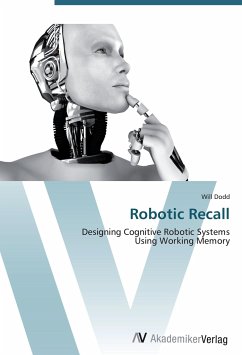Revision with unchanged content. The field of cognitive robotics attempts to design embodied artificial in telligence systems through inspiration from human psychology. Often in ro botics it is assumed that, because hard drives are capable of holding massive amounts of data, a robot should store all information it comes across for use in generating future behaviors. This work shows how this brute-force approach to robotic memory manage ment is flawed and proposes a memory management system based on the principles of John Anderson's ACT-R cognitive architecture. The creation and implementation of this memory system is detailed for a cog nitive robot. Three types of memory systems are outlined and implemented for ISAC, a humanoid robot. An adaptive working memory system is also detailed to tie the memory systems to the cognitive control of the robot. Several experiments were conducted to evaluate the performance of the new memory system and to demonstrate correct tuning. This book is addressed to robotic scientists as well as computational psycho logists. It is intended to demonstrate some principles of memory design for any researcher studying embodied artificial intelligence.
Hinweis: Dieser Artikel kann nur an eine deutsche Lieferadresse ausgeliefert werden.
Hinweis: Dieser Artikel kann nur an eine deutsche Lieferadresse ausgeliefert werden.








